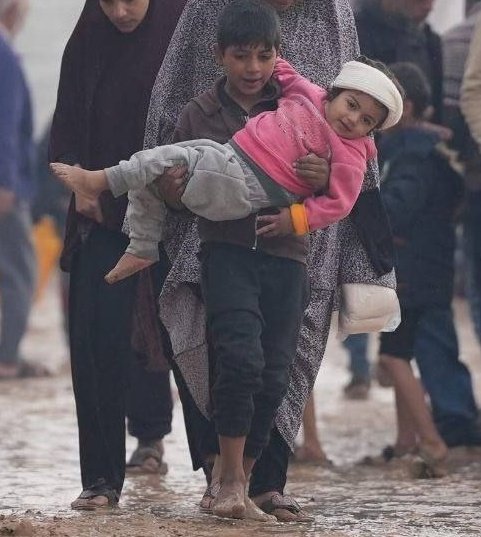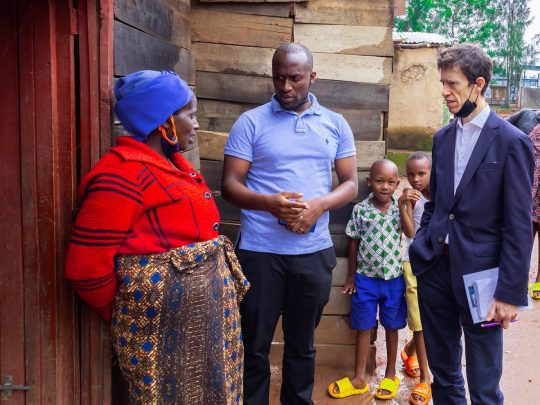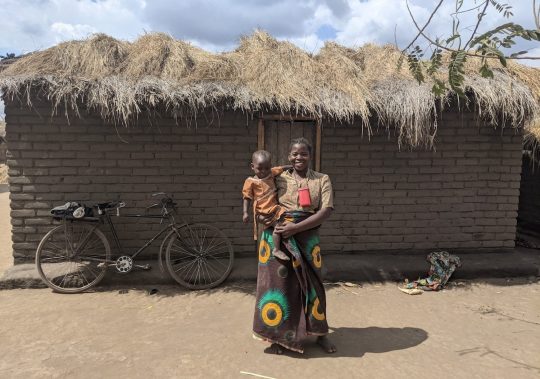#refugee crisis
Text

#Sudan Conflict#War Crimes#Humanitarian Crisis#Darfur Massacres#RSF vs SAF#International Neglect#Refugee Crisis#Peace Negotiations#Stalemate#Treaty Of Jeddah#Global Responsibility#Rebel Alliances#Civilian Casualties#Sudanese Crisis#Regio
197 notes
·
View notes
Text
I would find it so much easier to care about the people in the submarine, if I wasn't constantly fucking seeing headlines about ships going missing that were full of refugees and asylum seekers.
Like- look. Realistically?
Everyone in that sub is dead, and they are never going to be found.
But. All these rich dipshits who have never had a consequence in their lives, who willingly chose to sign a waiver and hop into a seriously unsafe submersible for funzies and bragging rights, like-
They still live in a different fucking world than everyone else.
They have multiple governments and military organisations and others "the private sector" working together trying to find them.
(I do know that there are lots of people who do really care about helping refugees and asylum seekers, "private sector" and NGOs and sometimes governments and stuff.)
I just...
I don't fucking care about these stupid fucking rich people.
I'm angry, that they decided to do something stupid and the world is apparently desperate to save these five people, and not...
All the fucking people who sign up for dangerous conditions because they are scared and desperate and hopeful.
I'm angry, that there are posts like
"Do you know how awful it would be to die like that? Have empathy!!!"
Like.
No?
I don't really care how cold that sounds.
I have limited emotional energy, and I choose to spend it ...not on fucking loser billionaires who thought they were fucking invincible.
I choose use my emotional energy to have empathy for the people who were seeking help and didn't fucking get it.
318 notes
·
View notes
Text

للنشر: الرصيف البحري العائم الذي تصطنعه #أمريكا و حلفاؤها في #غزة..ماهو إلا حصان طروادة (خدعة) و دعاية رخيصة بدعوى المساعدات الإنسانية من أمريكا المجرمة التي تشارك في إبادة شعب #غزة مع #إسرائيل.
The floating pier manufactured by #US and its allies in #Gaza… is nothing but a Trojan horse and cheap propaganda under the pretext of humanitarian aid from the criminal America, which is participating in the annihilation of the people of #Gaza along with #Israel.
Trojan horse, huge hollow wooden horse constructed by the Greeks to gain entrance into Troy during the Trojan War.
#Gaza #GazaFamine #GazaGenocide #Biden2024 @LatuffCartoons
#trojan horse#USA#GAZA#humanitarian#genocide#crimes against humanity#human rights#humanitarian aid#humanity#humanization#war crimes#israeli war crimes#refugee crisis#palestine#cartoon#carlos latuff#فلسطين#غزة#free palestine#free gaza#freepalestine#products#humor#UNICEF#genocide joe#khan younis#unwra#unrwa#photographers on tumblr#يوم الأرض
70 notes
·
View notes
Text



Images of displaced refugee children in Sudan, Palestine, and Congo.
#free palestine#free gaza#free them all#anti colonialism#resistance#refugee crisis#cw torture#crimes against children
50 notes
·
View notes
Text
The migrant shipwreck near Greece is a horrible tragedy – but it wasn’t an accident
“The Greek coast guard’s conflicting account states that the vessel was first spotted by Frontex, the European Border and Coast Guard Agency, at midday on Tuesday, June 13. It claims that once it achieved contact, those on board repeatedly stated that ‘the boat was not in danger, they wanted no help other than food and water, and that they wished to continue on to Italy.’ The coast guard states that at 1:40 a.m., the boat ceased moving, and at 2:04 a.m., a coast guard floating vessel reported that the trawler had capsized.
“International legal experts have noted that even if those on board the trawler said they did not want to be rescued, the coast guard had the obligation to independently evaluate if it was seaworthy and intervene if it was not. Photos of the trawler show that it was clearly overpacked, those on board did not appear to be wearing life vests, and the vessel was not flying any flag …
“These tragedies are no accident, but a product of political choices. Over the past decade, the EU has reduced access to asylum and made arriving on the continent ever more difficult — increasing policing and surveillance along its borders, erecting and expanding walls, and illegally pushing back thousands of people …
“There are years of evidence that Greece and Frontex regularly engage in and cooperate on illegal pushbacks — pushing migrants back over the border despite their right to seek asylum. In recent years, these pushbacks have been stepped up, both on the country’s northern land border and at sea. Those caught on the northern border are usually beaten, robbed of their phones and all their valuables, often stripped naked, and put in boats on the river Évros. People who arrive on Greek islands are usually gathered up, put on rubber boats, and abandoned at sea. Boats intercepted in the Aegean Sea are often damaged or have their engines removed, or else the Hellenic Coast Guard will simply tow them back to Turkish waters.”
#migrant shipwreck#boat crossings#migrant crisis#refugee crisis#migrants#refugees#asylum seekers#asylum#immigrants#immigration#humanitarian crisis#fortress europe#greek coast guard#frontex#greece#european union#eu#europe
130 notes
·
View notes
Text
An Iranian LGBTIQ activist is facing deportation to his home country. The Human Rights Association (IHD) announced on Friday that Elyas Torabiba-Eskandari was detained last Sunday at a Pride parade in Istanbul and taken into deportation custody. After a stay of several hours at the police station in the Beyoğlu district, Torabiba-Eskandari was initially taken to the deportation centre of the Turkish migration authority in Tuzla. In the meantime, he is being held in an identical facility in the border province of Urfa. Elyas Torabiba-Eskandari fled Iran ten years ago together with his mother. According to the IHD, both were victims of state violence, arbitrary detention and torture in their home country. Since their flight in 2013, they have been living in Turkey - however, they do not enjoy full refugee protection there in the sense of the Geneva Convention, but only have so-called conditional refugee status. Nevertheless, a deportation would violate the prohibition of refoulement, i.e. that refugees may not be deported to countries where their lives are in danger. However, the IHD regularly documents deportations of refugees from Turkey to Iran, but also to Syria and Iraq, where their lives are in danger.
LGBTQ+ activists face lethal punishments in Iran. This shouldn't be allowed.
#tw homophobia#tw queerphobia#human rights#politics#lgbtq+#middle east#iran#queer rights#turkyie#turkish politics#refugee crisis#refugee rights
108 notes
·
View notes
Text
Odd jobs are few and far between in Nearobo. Peter knows because every day he walks the streets of his village in south-east Liberia looking for one. In a good month, he might make $20 (£16.70). That’s hardly enough to feed himself, let alone his children.
But today things are looking up. As part of an innovative new donation scheme, Peter receives $40 (£33.40) per month for a minimum of three years. No paperwork. No requests for receipts. No catch of any kind, in fact. Just hard cash transferred straight to his mobile phone.
The 59-year-old casual labourer plans to use the money to buy materials for a new home for himself and his family, he says. “Although it is going to take long, I will continue until my house is completed.”
The scheme is part of a new-look approach to development assistance that, if taken to scale, could potentially turn the £156bn international aid industry on its head.
At least, so says Rory Stewart, the former UK foreign secretary turned podcaster-in-chief (he co-hosts ‘The Rest is Politics’ with Alastair Campbell, a surprise hit which has topped the Apple podcast charts virtually every week since it launched a year ago). From his new base in Amman, Jordan, Stewart heads up GiveDirectly – the world’s fastest growing nonproft – who are behind the initiative.
“It’s a rather radical, simple idea to help people out of extreme poverty. We deliver the cash directly … there’s no middleman and no government getting in the way.”
It feels like an odd statement from someone who has spent much of his life in government service: first as a junior diplomat for eight years (during which he penned a bestselling book about dodging Taliban bullets and hungry wolves whilst walking across Afghanistan), followed by almost a decade as a politician at Westminster.

Pictured: Rory Stewart and GiveDirectly’s Ivan Ntwali talk with a refugee household in Rwanda. Image: GiveDirectly
His enthusiasm is even more surprising given his initial caution. During his various ministerial stints at the UK’s department for international development (including three months as secretary of state), he was an out-and-out “cash sceptic.”
Giving away money with no strings attached was, he felt at the time, an impossible sell to tax-paying voters. What’s stopping recipients spending it down the pub? Or investing in a hair-brained business venture?
Quite a lot it turns out. No one knows the value of money more than those who don’t have any, he argues. Give an impoverished mother-of-four $40 (£33.40) cash and, 99 times out of 100, she’ll spend it on something useful: repairs to the house, say, or school fees for her kids...
By virtue of GiveDirectly’s model, participants can spend their money on whatever they choose, but the charity’s research indicates that most goes towards food, medical and education expenses, durables, home improvement and social events.
On the flipside, Stewart also has numerous examples of well-funded aid projects that deliver next to nothing. A decade ago, the then United Nations general secretary Ban Ki-moon estimated that 30 per cent of aid money disappears in corruption. There is little to suggest much has changed.
The aid industry doesn’t need corrupt officials to see its funds evaporate, however; it has its own voluminous bureaucracy. Stewart recalls once visiting a $40,000 (£33,560) water and sanitation project in a school in an unnamed African country. The ‘deliverables’ were two brick latrines and five red buckets for storing water...
The beauty of direct giving, he stresses, is not just that it annuls opportunities for thievery and red tape; it also frees the world’s poorest individuals from the well-meaning but, very often, misplaced guidance of donors. An aid expert in Brussels or Washington DC may well have a PhD in development economics, but who is best to judge what a single mother in a Kinshasa slum needs most and how to obtain it most cheaply: the expert with her degree, or the mother with her hungry children?
Empowering recipients to decide for themselves helps end the kind of “mad world” where aid agencies pay to ship wheat from Idaho, US, to Antananarivo, Madagascar, only for local people to sell it in order to buy what they really want, Stewart reasons.
“So often, these communities are having to turn the goods we send them into cash anyway, but just in a very inefficient and wasteful fashion … instead [with direct cash transfers] they are given the choice and freedom in how to spend it.”

Pictured: Villagers in Kilif, Kenya, at a public meeting about the GiveDirectly programme. Image: GiveDirectly
Is the system perfect? No, clearly not. Stewart concedes that opportunities for fraud and coercion exist. To minimise these risks, GiveDirectly employs field officers to meet face-to-face with recipients, as well as a team of telephone handlers and internal auditors to follow up on reports of irregularity.
By his reckoning, however, the biggest impediment to direct giving really taking off is donor reticence. At present, only 2 per cent of official aid is given direct in cash. Stewart thinks it should be closer to 60 or 70 per cent...
‘My children will not have to beg anymore’

Happiness Kadzmila from Malawi enrolled on GiveDirectly’s Basic Income project last summer. She will now receive $50 (£41) a month for a year ($600/£496 in total).
What are the biggest hardships you’ve faced in life?
I am a divorced mother of four children. I got divorced in 2020 while I was eight months pregnant with my last-born child. Since then, I have been depending on working on other people’s farms. I get paid $0.49 (£0.43), or a plate of maize flour per day. As a result, it has been a challenge to feed my children, buy clothes for them, and to pay their school fees My firstborn child is in year 4, the school charges $0.69 (£0.61) per day for her. My second is in year 3, I pay $0.49 (£0.43) for him. There were days when I would have no food in my home, and my children would go to my neighbours’ homes to beg for food. This made me feel sorry for my children as a mother.
What does receiving this money mean for you?
I was so happy the day I received cash amounting to $51.75 (£43.56) from GiveDirectly. I used the money to buy maize at $9.88 (£8.32). My children will not have to go to our neighbours to beg for food anymore. I also bought a sheep at $34.58 (£29.10). I will be selling sheep in future when they multiply. I also bought lotion and soap at $1.88 (£1.58).
How will you spend your future payments?
I plan to renovate my house. I have always admired those who sleep in houses made of a roof with iron sheets because they do not have to think of fetching grass every year for a new roof. I will also start a business selling doughnuts to sustain my income after I receive my last transfer. I did not know that an organisation like GiveDirectly would come to help me this way All I can say to those who are giving us this money is ‘thank you’."
-via Positive News, 3/3/23
More and More People to Help
In addition to their universal basic income programs, GiveDirectly also has dedicated programs where you can donate to emergency disaster relief, people living under the protracted civil war and human rights disaster in Yemen, refugees, and survivors of the Syria-Turkey earthquake.
They have also commissioned a number of large-scale, third-party studies on the effectiveness of their numerous universal basic income models. Find these and other projects here.
#charity#donations#foreign aid#extreme poverty#poverty#economic inequality#africa#yemen#syria#turkey#malawi#kenya#rwanda#refugees#refugee crisis#givedirectly#universal basic income#good news#hope
197 notes
·
View notes
Text
And we must pray for the generations who will inherit a grief that they do not own.
All the Things I Have Asked of Love by Leonie Anderson
#inspiration#life quotes#love quotes#i love this#poetry#self love#i love it#beauty#prayer#lovers#war#refugees#refugee crisis#love notes#religion#dark acadamia quotes#book quotes#bookstagram#poems on tumblr
3 notes
·
View notes
Text
Along Texas' floating border barrier, migrant children left bloody by razor wire
Updated 7:25 pm EDT Jul. 21, 2023
EAGLE PASS, Texas – By the time Omar Tortua and his family waded into the warm river water at Piedras Negras, they had already survived a treacherous journey through the jungle of the Darién Gap, across six countries and past cartel kidnappers.
But it was only at the end that Tortua saw the danger claw into his own child, when a coil of concertina wire – placed at the American shoreline, by Texas officials – ensnared the leg of his 5-year-old son.
He scooped up the bleeding child, with officers watching from the riverbank above.
All along this river bank, scraps of clothing bear witness to the many migrants who have been snared by razor wire in recent weeks. And as federal and state officials clash over Texas' latest border security initiative, the migrants who reach the United States display its toll, in bruises and broken ankles and glinting rows of surgical staples that hold closed slice wounds. An internal e-mail from a Texas state trooper, revealed this week, raised the alarm that the state's efforts had become "inhumane." On Friday, USA TODAY observed how that razor wire has slashed not just adults but young children.
Tortua, 27, from Venezuela, had waded into the Rio Grande early Wednesday. With him were his wife, Yamilet Castillo, 31, and their sons, Jesús and Elias. The boys are twins, the kind of kids who giggle together at each new sight, wide-eyed and curious at the world.
The family had already been trekking for weeks. Turning back now was not an option.
They shuffled, waist-deep, along the river’s edge, maneuvering around coils of lacerating wire in the water and stepping carefully over more that stuck out along the banks.
From the Texas bank of the river, men in vehicles trailed them slowly. Whether the agents were state troopers, National Guard or Border Patrol, the family didn't know. They were simply policías, and they were calling out instructions: Tortua and his family would have to keep going, downriver to a staging area – or return to Mexico.
As he climbed around one rock in the river, Jesús slipped and stumbled onto a wire coil that jutted out. It slashed into his left calf, leaving a two-inch gash. Blood spilled into the water. Jesús let out a shrieking cry.
The authorities called out, from the other side of the wire, saying they could help. Tortua reached over the coils and handed them his son.
The authorities wrapped the boy’s cut. But they made the rest of the family continue farther downstream, before allowing them up on the banks, Tortua said.
Somewhere along the way, a medic treated the boy’s leg. His family was turned over to U.S. Border Patrol, where they were processed and released until their court date.
“It was horrible,” Tortua said Friday from inside the Mission: Border Hope migrant shelter just outside Eagle Pass. He pulled up Jesús’ pant leg to show the four medical staples it took to seal the gash.
“I don’t understand: If they were just going to arrest us and let us go, why do they have to put all that up?” he said. “It doesn’t seem right.”
“All that” is the miles of razor wire Texas has erected on the banks of the Rio Grande to deter unauthorized crossings.
Attention to them has amplified this week along with controversy over Texas’ other attempt at a border barrier: a 1,000-foot string of floating orange buoys the state deployed at midstream. Purchased from a government security contractor, the “floating wall” is designed to trap swimmers, in a river that often runs knee-deep and warm in the summer sun, but where the tranquil surface hides dark pockets of head-high water.
In the past week, migrants, including many children, have arrived at the Eagle Pass shelter with an array of injuries: lacerations, welts, open wounds. Pregnant women have high blood pressure from stress, said Valeria Wheeler, the shelter’s executive director, and migrants have gashes in heads and faces. The shelter has also been accepting an usually high number of migrants recently released from hospitals, she said.
“This is the worst I’ve ever seen it,” Wheeler said. “They’re putting lives at risk.”
Revelations of those injuries have drawn widespread condemnation from immigrant advocates, Democratic leaders and other agencies. By the end of the week, the Justice Department warned Texas that it planned to file suit over the floating barrier.
“The State of Texas’s actions violate federal law, raise humanitarian concerns, present serious risks to public safety and the environment, and may interfere with the federal government’s ability to carry out its official duties,” the department wrote in a letter to Gov. Greg Abbott, which was obtained by USA TODAY.
The letter gives Texas until Monday to commit to removing the barrier and warns that, if there is no response, the administration will proceed with a lawsuit.
The coils of wire also restrict U.S. Border Patrol agents from accessing the river and helping migrants in distress.
“We can enforce the law and, at the same time, ensure that we prioritize the wellbeing of those we encounter,” a Border Patrol spokesperson said in a statement. “We are very concerned by reports of actions that not only make it harder for Border Patrol agents to enforce our nation’s immigration laws, but also put lives in danger.”
Texas Gov. Greg Abbott’s border actions brought condemnation from the White House.
"The governor’s actions are cruel and putting both migrants and border agents in danger," White House spokesman Abdullah Hasan told USA TODAY Friday. "The Department of Justice made clear that it is prepared to take the governor to court if he doesn’t immediately remove the unlawful structures in the Rio Grande."
A floating border wall in Texas, and a whistleblower's warning
The Texas Department of Public Safety and Texas state guard have been uncoiling miles of concertina wire along the banks of the Rio Grande since 2021 as part of Operation Lone Star, Abbott’s multi-billion initiative to use state resources to curtail unauthorized border crossings. More than 90 miles of the sharp-edged wire has been unfurled throughout South Texas, according to DPS.
The dangers of the razor wire entered the spotlight, though, when a recent email by a Texas DPS trooper to his superiors was made public. The July 3 email by trooper and paramedic Nicholas Wingate, first reported by the Houston Chronicle, describes how he and fellow troopers came across large groups of men, women and children along the banks of the Rio Grande and were ordered by commanders to “push the people back into the water” toward Mexico.
The email, which DPS provided to USA TODAY, also described encountering a male migrant with a “significant laceration” on his left leg while extricating his child from the razor wire and a 19-year-old pregnant woman having a miscarriage while stuck in the wiring. He also alleged troopers were directed not to give water or medical attention to migrants.
“I believe we have stepped over a line into the in humane [sic],” Wingate wrote.
Two weeks later, on July 15, DPS director Steve McCraw dispatched an email to regional directors with the subject line “Incidents Involving Concertina Wire – DPS,” in which he reminded DPS leaders that crossing through “the concertina wire without protective gear is no doubt likely to result in an injury. This is self evident, but we need to ensure that migrants are reminded of this by signage and continued verbal warnings …”
Internal memos show DPS was circulating photos of border-crossers wounded by the wire. One shows a migrant with a long gash along the torso that had been medically stapled shut. Others show a bloodied finger and leg injuries. A memo lists seven incidents, between July 4 and July 13, where migrants had been caught in the concertina wire, including a mother and child who had been transported to the hospital with cuts and another migrant who was transported to San Antonio for “treatment with several lacerations that required staples.”
McCraw’s directive says agents would continue to save lives, and notes that a soldier died during a water rescue – an apparent reference to an incident last year.
But the directive also echoes the orders Tortua heard as his children approached the razor wire.
“We will be able to prevent migrants from risking their lives by denying them access between the Ports of Entry,” McCraw wrote, “and encourage them to use one of the 29 Texas international bridges where they can safely cross.”
DPS’ Office of Inspector General is investigating the allegations made in Wingate’s email, agency spokesman Travis Considine said. “If our personnel are doing anything that violates policy, they will be held accountable,” he said in an email. “There are no orders from the top that prohibit Troopers from giving water to women and children or attending to migrants who need medical attention.”
In a joint statement from Abbott’s office, McCraw, Texas Border Czar Mike Banks and the Texas National Guard, state officials said they were taking steps to monitor the safety of migrants and provide medical attention to those in distress. They blamed President Joe Biden’s border policies for the need to ramp up enforcement.
“With migrants from over 150 countries encouraged by open border policies to risk their lives and make this dangerous trek to enter our country illegally, Texas is deploying every tool and strategy to deter and repel illegal crossings between ports of entry,” it said. “The absence of these tools and strategies—including concertina wire that snags clothing—encourages migrants to make potentially life-threatening and illegal crossings.”
But Texas may be overstepping its authority by deploying the buoys, experts said. Placing the buoys without consulting the U.S. section of the International Boundary and Water Commission violates the 1944 water treaty and 1970 treaty between the U.S. and Mexico, said Stephen Mumme, a Colorado State University political scientist and author of “Border Water: The Politics of U.S.-Mexico Transboundary Water Management, 1945-2015.”
Last week, high-ranking Mexican officials filed a complaint over the buoys. Considine, the DPS spokesman, would not comment on Mexico’s complaints. Neither would the U.S. State Department.
Mexico did not previously complain when border walls and fences went up on the U.S. side of the Rio Grande without consulting the commission, also a potential violation of the treaties, Mumme said. The fact that they are now raising complaints points to how serious Mexican officials consider the matter, he said.
“The state of Texas has no authority whatsoever to be doing what it’s doing,” Mumme said.
A border grove fenced like a prison
Just behind Heavenly Farms, a 300-acre pecan grove on the banks of the Rio Grande in Eagle Pass, coils of concertina wire are stacked one atop of the other, stretching for miles in either direction.
Sweaters, swim trunks and shards of T-shirts hang from the wires’ pointed barbs, left behind by migrants snagged by the wire. Humvees and trucks ferrying National Guard troops from Ohio and Missouri, U.S. Border Patrol trucks and DPS cruisers steadily rumble over dirt roads, kicking up clouds of dust.
Migrants are often caught in wire nearly submerged near two islands in the river or climbing over the coils to reach U.S. soil, said Magali Urbina, the farm’s owner. Urbina called the concertina wire “sickening” and she and her husband, Hugo Urbina, have repeatedly asked Texas authorities to remove the wire from their property, but they’ve refused, she said.
“It’s horrible,” Magali Urbina said. “I can’t imagine how many people have gotten caught in it.”
The Urbinas bought the land in 2021 as an idyllic retirement location, where they could gaze out at the churning waters of the Rio Grande and occasionally go fishing. Instead, it now more closely resembles a prison camp. Though streams of asylum-seekers stalked through her property last year, those numbers were already dwindling earlier this year before Texas put up the wire, she said.
Magali Urbina questioned if the wire will truly deter migrants.
“If they came from Venezuela, through the Darién Gap, this is not going to stop them,” she said, looking out at coils of stacked concertina wire at the edge of her property.
DPS officials said troopers should not be jeopardizing the wellbeing of migrants and have shared pictures on social media of troopers assisting migrants. But asylum-seekers at the Mission: Border Hope shelter, some with small children, described scenes of crossing the river only to be told by authorities on the U.S. side to return across the Rio Grande to Mexico or trek for miles downriver.
Reyna Gloria Domínguez, 42, from Honduras, crossed the river two weeks ago with her husband, Edemecio, and four children, ages 5 to 22. She was nursing a broken ankle she said she had suffered in Monterrey fleeing gunmen on her trip to the border. As the family arrived on the U.S. side and faced coils of concertina wire, authorities told her they would take her since she was injured but her family had to return to Mexico, she said.
Domínguez said she stood on the banks, dripping wet, and cried as she watched her family recross the Rio Grande and return to Mexico.
“I said, ‘God, please, where are you?’” she said through tears at the shelter on Friday, as she hugged a battered Bible. “I didn’t know if my children made it back to Mexico or were here or even alive.”
She added: “I never imagined that the United States would be so painful, so heartless.”
Diego Molina, 34, fled Honduras with his family earlier this year to flee criminal gangs who he said had shut down his business and extorted money from him. He needed to reach the U.S., he said, to save money and get a heart-valve operation done for his son, Diego, 10, to fix a heart condition.
As he crossed the Rio Grande earlier this week with Diego, his wife, Heidy Orellano, 33, and their 1-year-old daughter, Camila, he was met with rows of concertina wire. They crossed with a pregnant woman and her husband and a mother with two small children. As they puzzled how to get past the wire, U.S. authorities yelled at them to go further downriver and blared a siren at them, he said.
With water at times coming up to his neck, Molina led his family downriver. The men on the banks told them to keep going but his son was struggling to breathe. With sirens blaring and children crying, he stepped on razor wire protruding from the water and had his family amble on shore. The wire tore at his pants, but everyone made it to land. The authorities immediately called an ambulance for the pregnant woman and for his son.
“We didn’t think it would be like this,” Molina said from the shelter on Friday. “But once you cross from Mexico, you can’t go back.”
Michael Collins and Bart Jansen of USA TODAY contributed.
50 states.
Countless
viewpoints.
USA TODAY brings you the
nation's perspectives for greater
understanding of today's world.
INSTALL OUR APP
Originally Published 7:10 pm EDT Jul. 21, 2023
**Updated 7:25 pm EDT Jul. 21, 2023**
Hell’s finna be hot for people like Greg abbott. And I don’t care if the governor tells you to do it, when someone orders you to mistreat migrants in the same country that wouldn’t be where it is today without immigrants you better say NO.
#Greg abbott#conservatives#american politics#uspol#texas politics#gop#greg abbott#fuck greg abbott#european union#migration#immigrants#refugee crisis#refugees
10 notes
·
View notes
Text
#Sudan #KeepEyesOnSudan



#Sudan Conflict#War Crimes#Humanitarian Crisis#Darfur Massacres#RSF vs SAF#International Neglect#Refugee Crisis#Peace Negotiations#Stalemate#Treaty Of Jeddah#Global Responsibility#Rebel Alliances#Civilian Casualties#Sudanese Crisis#Regio
144 notes
·
View notes
Text
Wanna save some lives?
Don't you all just love it when someone decides that because you do something they don't agree with, you should be murdered?
It's not at all like people can do whatever they want to with their own damn lives. No no, some people are determined to ruin everyone else's lives because people do something they don't like.
So they chose to murder those people like that doesn't make them entierly in the wrong regardless of the situation.
If you know why this is happening, you know what group I am talking about.
If you for some reason, agree with fucking murdering someone for *gasp* being gay or trans or not behaving in a "proper, natural" cishet way, I've got a fucking news flash for you dickhead, very few things on this planet are 100% heterosexual, almost everything engages in a lil homo, and only us big brain dumb dumbs decide to throw hissy fit about it and kill each other for it.
Truly, the more advanced life forms.
Also literally every man was a woman at some point, fucking think about it, use your brains and think critically instead of just believing whatever some authority figure told you.
I really wish humanity was more like bonobos than chimps, there'd be very little way for any of this to happen cause 1, Bonobos aren't very violent, and 2, they are all pansexual, everyone's fucking everyone when you're a bonobo.
Bonobos are our closest relatives btw.
If you believe that people should be murdered for being gay, you are wrong, no one should be murdered for something like that. Go fuck yourself and consider becoming a better person, the world needs less assholes and I need some faith in this dumpster fire of a species. Feed two squirrels with one scone and don't be a garbage person. It's not that hard. It really isn't.
I would say sorry for pushing this bad news on you and ruining your day(it ruined mine, trust me) but, I am not, it is important to fight against so, maybe donate or protest or stop supporting the groups who use political power and influnce to push their agenda onto the governments of countries dependent upon their aid and make them do atrocious things like this.
I swear if anyone tries to fight me and say it is somehow justified, I will fucking destroy you.
#LGBT#lgbtqia#lgbtq community#queer community#queer#Lgbtq aid#lgbt activism#lgbt aid#Uganda#humanrights#rights#Refugees#refugee crisis#Save lives#Donation#emergency#donate#donations#fundraising#please donate#It will save lives#Because this is some serious shit#And it makes me depressed to think about#Cause this shit should not happen#I don't give a fuck what you believe You should not be murdered for who you are attracted to#What the actual fuck is wrong with people to think that it is in anyway ok#There is no reason that justifies this. None.#Try to give me one and I will fucking fight you#VJS#Is fucking pissed
9 notes
·
View notes
Text

Art: Eli Valley
Eli Valley is a Jewish Currents contributing writer.
#genocide#palestine#gaza#humanitarian#human rights#war criminals#war crimes#crisis#crimes against humanity#refugee crisis#artists on tumblr#palestinian art#my art#digital art#illustrator#Eli Valley#cartoon#humanity#humour#nature#rachel#freedom#free gaza#icj#icc#iof#Rachel corrie#Israel#apartheid#GIF
12 notes
·
View notes
Text
You know what I think?
Every nation that has benefited from repressing and invading other nations must compulsorily take in any and every refugee that comes to their shore
No crying about migrants, no being an asshole about having to give up some of their resources for the greater good
Call it karma if you want, but your nation must take in people since once upon a time, they were responsible for a fuck ton of misery
7 notes
·
View notes
Text
Tensions come to a head with a proposal to limit the entrance of children of war refugees who are already in the Netherlands and to make families wait at least two years before they can be united.
#fortress europe#europe#dutch#netherlands#un refugee agency#refugee crisis#racism#fascism#immigration nz#immigrants#immigration#immigratetocanada#rohingya refugees#united nations high commissioner for refugees#afghan refugees#political refugees#syrian refugees#196 refugee#palestinian refugees#twitter refugees#climate refugees#world refugee day#sudanese refugees#refugees#humanrights#antinationalism#antinationalist#antinazis#antinazi#ausgov
5 notes
·
View notes
Text
Here’s the flaw in Sunak’s poisonous strategy: voters don’t believe migrants cause all their problems any more
“You can’t separate Britain’s parlous state and Rishi Sunak’s latest bungled attempt to escalate the “stop the boats” campaign. No British government in democratic history has presided over such an acute period of national decline. The average Briton is set to be no better off in 2026 than they were in 2008, and the poorest fifth are more than 20% poorer than their French and German counterparts ...
“In these circumstances, it is perhaps understandable that a Conservative prime minister will desperately reach for a big red button labelled ‘immigration’. Having manufactured the phenomenon of refugees arriving in small boats by closing down safe and legal routes, the Tories believe the sight of desperate, dishevelled foreigners clambering on to British shores will deflect public anger away from the country’s multiplying crises ...
“There are reasons to doubt that Sunak’s morally debased campaign will succeed: attitudes towards immigration have improved, with only 9% of voters regarding reducing it as a top priority, and the country’s crises are too calamitous to shift the blame from the ruling party. But as we witness Britain’s decline to the status of a poor country with a few rich people in it, we must surely conclude that the Tory scapegoating of migrants played a pivotal role in our nation’s social and economic descent.
“For many years, a significant chunk of the electorate were convinced by claims that migrants really were responsible for soaring NHS waiting lists, strained local schools, the absence of affordable housing, and all manner of other social disorders. That deflected scrutiny away from the real causes, leaving the sickness untreated. Will we finally learn, I wonder, that it’s those who demonise fellow humans from foreign lands who pose the greatest danger, not those who flock to our shores and enrich our communities.”
#owen jones#rishi sunak#conservative party#tory party#conservatives#tories#small boats crisis#refugee crisis#migrant crisis#hostile environment#immigration policy#refugees#asylum seekers#migrants#immigration#racism#xenophobia
3 notes
·
View notes
Text
Remember that in June of 2019, a mentally ill diabetic was deported to a country he had never been in before, where he had no family or reliable means of getting the medication he needed, and in which he was a member of a persecuted religious minority.
Remember that on this day (August 6th) three years ago, this man died in the country that his parents fled, in all likelihood from the lack of access to the medication that was keeping him alive and healthy.
Maybe please take a moment today to pray / observe a moment of silence for Jimmy Aldaoud and his family.

#figures of note#diabetes#disability#schizophrenia#Iraq#mental illness#refugee crisis#immigration#Chaldean Catholic
21 notes
·
View notes